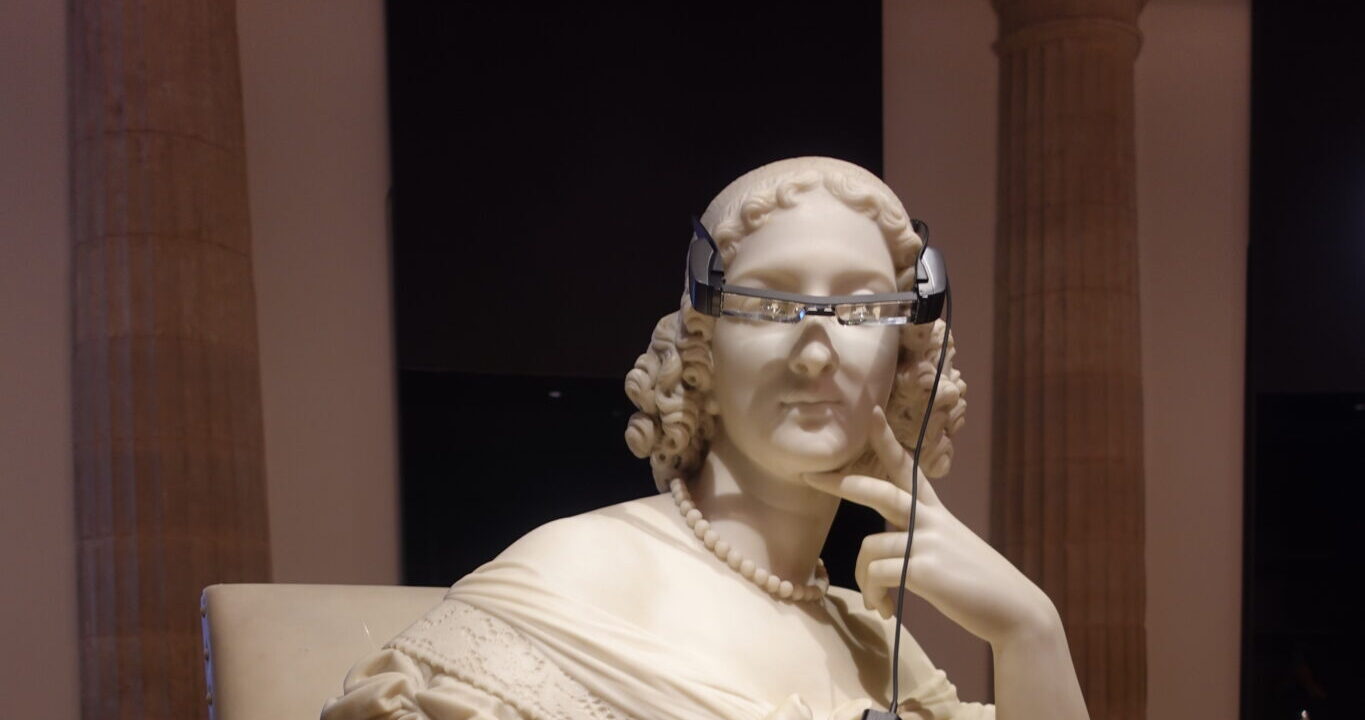A Theater Unlike Any Other
A public-private partnership between the Society of French Actors and EPIC Comédie-Française, sharing artistic creation and management, the Comédie-Française is one of only four French National Theaters. This distinction recognizes not only the high level of production quality and performance, but also its importance to France’s history and cultural identity.
Headquartered in the beautiful Salle Richelieu theater in central Paris, beside the Place Collette with its ornate, crown-like metro station, the Comédie-Française is both a repertory theater of French and international classics and a creative theater staging new productions. The unique blend of classical and innovative works is flawlessly executed through three pillars of the company’s DNA: its Repertoire, the Troupe, and the Alternation.
The Repertoire consists of French and foreign plays, classic and contemporary. This enormous body of work totals nearly 3,500 plays, constantly evolving with new additions. The works in the Repertoire from a living memorial space for dramatic art in all eras and styles of theatrical writing, preserving these pieces. Victor Hugo, Molière, and Racine coexist in a program with contemporary playwrights, keeping the conversation between new and classic theater vibrant and alive.
Alternation refers to the company’s practice of performing shows alternately, meaning several different plays are on stage the same week.The performances, even the performers, are always changing, so that audiences are treated to something new throughout the entire season across the company’s three stages: the Salle Richelieu, the Théâtre du Vieux-Colombier (located on the left bank of Paris, near Saint-Germain-des-Prés) and the Studio-Théâtre (located in the basement of the Louvre Museum). The Comédie-Française is the only French theater that offers this ambitious level of variety.
The Troupe is one of the unique features of the company. The only French National Theater to have its own permanent troupe of actors, membership in the Maison is prestigious and exclusive. All members are hired by the general administrator under the status of “residents” or pensionnaires, no matter how well known or established in their previous career.
To join the Society of French Actors, one must have at least a year of seniority, with his or her talent recognized by peers from the Society of French Actors unanimously. The nominated candidate receives an official decree from the Minister of Culture to be part of the Society of French Actors. Those with 20 years of service earn honorary membership, allowing them to perform with the Troupe periodically post retirement.
These actors are considered among the most talented and dynamic performers in the country. The 60-member Troupe play up to eight plays simultaneously on the three stages of the Comédie-Française, on top of which they also tour throughout France and abroad.
Experiencing Comédie-Française Live with Smart Glasses, On the Road, and In Exhibition
Francophiles and theater lovers can enjoy French plays regardless of language barriers, thanks to cutting-edge Smart Glasses, whose adjustable display settings generate subtitles in real time in English, French, and sign language. Since March of 2024, Smart Glasses are offered free of charge every night at the Salle Richelieu through the support of the Fondation pour la Comédie-Française.

The Comédie-Française is the first French theater to use this innovative tech, developed by the Franco-German start-up company Panthéa. The device allows the spectator to project content in the chosen language directly onto the glass, superimposed in the field of vision, without obstructing view of the stage. Subtitles can be personalized by color, size, and positioning in the field of vision. The subtitles are activated in real time by an operator and for all glasses, regardless of the spectator’s choice of seat and language.
Our staff member, Barbora Tvrdik, had the opportunity to test these glasses during a performance this season of Moliere’s Le Malade imaginaire: “As an American, the glasses were a fantastic way to enhance the experience of the show. The subtitles were seamless, with no lag time, and allowed me to appreciate the humor and nuance even more. I think French learners will especially value the option of having subtitles in simplified French, which give you that fantastic immersion experience without being too challenging.”
In addition to its many performances in Paris, the Troupe frequently performs on tour. Last season, nearly 45,000 people were able to attend Comédie-Française shows outside Parisian walls. This 2024-2025 season, particularly rich in material, seven of the Maison‘s shows are on tour.
While the last time the Troupe graced American states was in 2018, performing The Damned, based on the movie by Luchino Visconti at the Armory Park in New York, in 2024 the Comédie-Française enjoyed a rich international presence. Tours extended to China with Les Fourberies de Scapin, and an exceptional run in Europe of Hécube, pas Hécube: Greece, Slovenia, Slovakia, Czech Republic, Bulgaria, Croatia, Romania, Turkey, Germany, Switzerland, Portugal, Belgium, and Luxembourg.
Special exhibitions also offer audiences a chance to explore the rich theatrical heritage of the Comédie-Française. One such exhibition, organized in partnership with the School of Jewelry Arts and sponsored by Van Cleef & Arpels, showcases the institution’s remarkable collection of stage jewelry. These ornate costume elements hold both aesthetic and symbolic significance, and can be woven into dramatic storytelling central to the plot.
To mark the opening of its new exhibition space at the Hôtel de Mercy-Argenteau in Paris, the School of Jewelry Arts unveiled this unique collection in 2024, following extensive restoration and research in collaboration with the Comédie-Française. This exhibition will also travel to Shanghai in May 2025, offering international audiences a rare glimpse into the artistry and history of theatrical jewelry.
Up Next at the Comédie-Française
During the season 2024/2025, American audiences can look forward to Le Soulier de satin written by Paul Claudel. A monumental literary and theatrical work written between 1918 and 1923, Le Soulier de satin was first staged in 1943 at the Comédie-Française, directed by Jean-Louis Barrault, who risked everything to obtain Claudel’s permission to stage it during the Nazi occupation.
Directed by Éric Ruf, the current general administrator, this season’s production will captivate audiences for over 6 hours, divided in 2 parts. “This “love drama”, in the form of a twenty-year journey, tells the story of Rodrigue and Doña Prouhèze, wife of the governor Don Pélage, at the time of the conquistadors in the Spanish Renaissance,” share Anne Marret, Secretary General of the Comédie-Française, and Marie-Claire Janailhac-Fritsch, President of the Fondation pour la Comédie-Française.
“Should you prefer classical French Theater, you should definitely look out for Cyrano de Bergerac by Edmond Rostand or Le Bourgeois gentilhomme by Molière: both offer a completely new version in terms of staging and have become landmark plays of the Comédie-Française,” they add.
This summer, audiences will also be able to experience a new play that combines Antiquity theater and contemporary issues: Hécube, pas Hécube. First presented at the 2024 Festival d’Avignon, it has been touring in Europe since and will come back to the Salle Richelieu at the end of May.
Supporting the Comédie-Française
The Fondation pour la Comédie-Française is dedicated to ensuring that all audiences can experience the magic of French theater in all its forms. The foundation has worked with Friends of Fondation de France since 2018 to connect with its audience in the United States, providing passionate lovers of theater with the opportunity to make tax-deductible donations to this non-profit organization.
Friends of Fondation de France is proud to support the Comédie-Française in preserving and protecting French theatrical heritage while continuing to produce innovative artistic creations and pioneering advancements in audience experience. To learn more about how to support the Fondation pour la Comédie-Française, please visit their page on our website.



